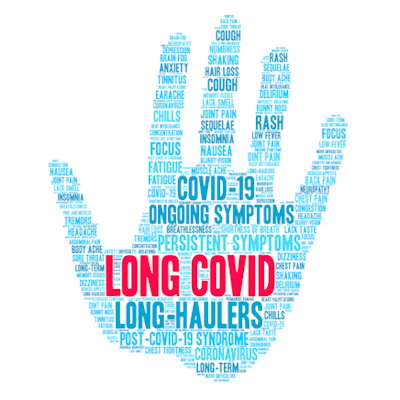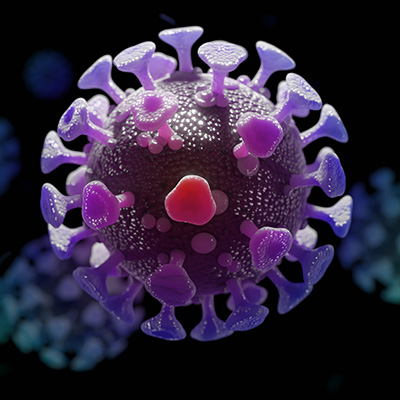January 18, 2023 -- A cohort study found that the risk of developing persistent post–COVID-19 symptoms, or long COVID, was significantly higher in unvaccinated participants and those initially hit harder by the virus. The research, published Wednesday in JAMA Network Open, showed that six months after onset, long-COVID participants had a significantly higher risk of pulmonary, diabetes, neurological, and mental health issues than they did preinfection.
SARS-CoV-2 infection can result in a variety of outcomes ranging from minor or no symptoms to hospitalization and death. Symptoms affecting those with post–COVID-19 conditions include fatigue, shortness of breath, joint pain, anxiety, and depression. Post–COVID-19 conditions may vary with viral variants. Understanding these diverse outcomes has improved even as new variants emerge. However, researchers point out the importance of evaluating post–COVID-19 condition risk in a range of populations, including younger, healthier, and lower-risk individuals.
While data show that SARS-CoV-2 vaccination is highly protective against acute symptoms, hospitalization, and death, the relationship between vaccination and post–COVID-19 conditions remains unclear. Studies suggest that vaccination after infection may mitigate long COVID risks. If vaccination either before or after infection is proven to decrease post–COVID-19 condition impacts, stronger arguments for vaccination would emerge. Therefore, further evidence is much needed to clarify vaccination's role as a post–COVID-19 condition intervention.
The Epidemiology, Immunology, and Clinical Characteristics of Emerging Infectious Diseases with Pandemic Potential (EPICC) study -- a longitudinal observational cohort study of 1,832 U.S. Military Health System beneficiaries aged 18 or older who tested positive for SARS-CoV-2 from February 28, 2020, through December 31, 2021, with a one-year follow-up -- sought to describe clinical SARS-CoV-2 infection outcomes.
Researchers described long-term post-COVID-19 experiences and factors associated with post–COVID-19 condition risk in the study cohort, quantified the association of vaccination both before and after infection with persistent COVID-19 symptoms, and compared the frequency of organ-specific healthcare events before and after SARS-CoV-2 infection.
The study found that the risk of reporting symptoms for 28 or more days after COVID-19 onset was significantly higher in participants who were unvaccinated at the time of infection, as well as in those who reported moderate or severe symptoms. At six months post-onset, these participants had a significantly higher risk of pulmonary, diabetes, neurological, and mental health events compared with their preinfection baseline. The findings suggest that vaccination is associated with a lower risk of long-term COVID-19 symptoms.
More severe acute illness, a higher Charlson Comorbidity Index score (a determinant of mortality), and being unvaccinated were all associated with a higher risk of reported COVID-19 symptoms lasting at least 28 days. These participants were more likely to seek medical care for diabetes, pulmonary, neurological, and mental health-related illness for at least six months after onset compared with their pre-COVID-19 baseline patterns. The researchers note that understanding the factors associated with long-term post-COVID conditions may be key to their prevention, and hope their findings will better inform the risk-benefit ratio of COVID-19 vaccination policy.
Copyright © 2023 scienceboard.net









